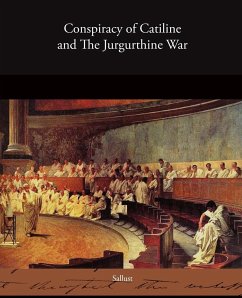Edgar Saltus (1855 -1921) was an American writer known for his highly refined prose style. Saltus wrote two books of philosophy, The Philosophy of Disenchantment and The Anatomy of Negation. Imperial Purple was published in 1892. Imperial Purple is a series of sketches about the Caesars. The book begins with Julius Caesar and continues through to Elagabalus "The Child of the Sun". Saltus presents the good and the bad in the characters of these historical people.
Hinweis: Dieser Artikel kann nur an eine deutsche Lieferadresse ausgeliefert werden.
Hinweis: Dieser Artikel kann nur an eine deutsche Lieferadresse ausgeliefert werden.








